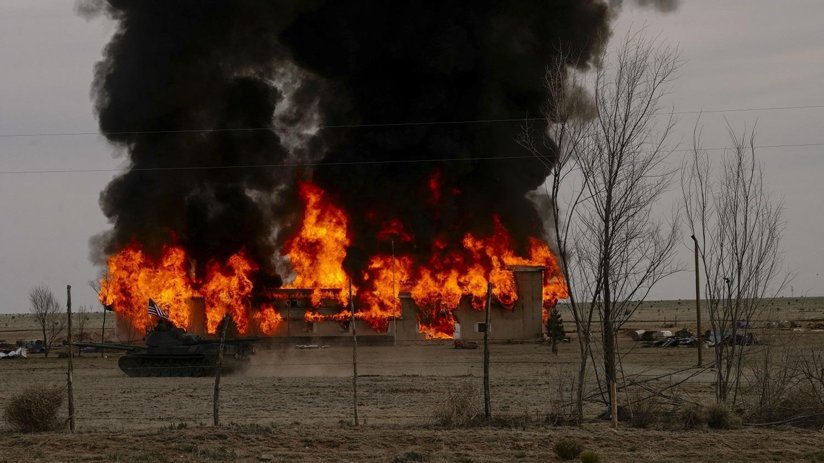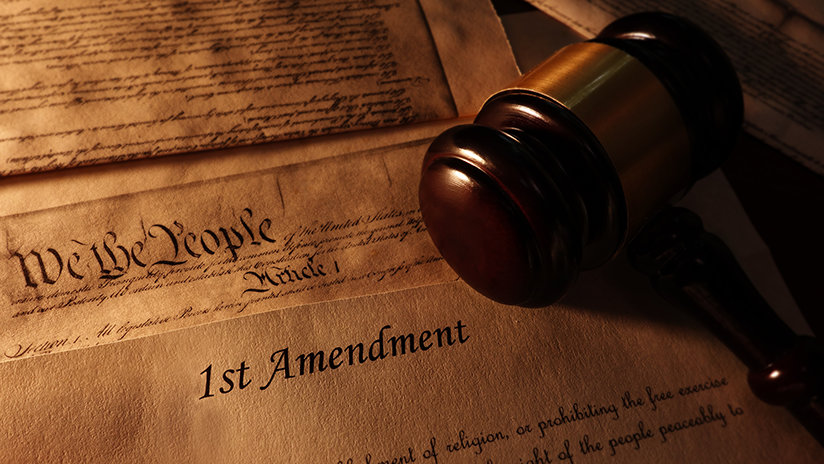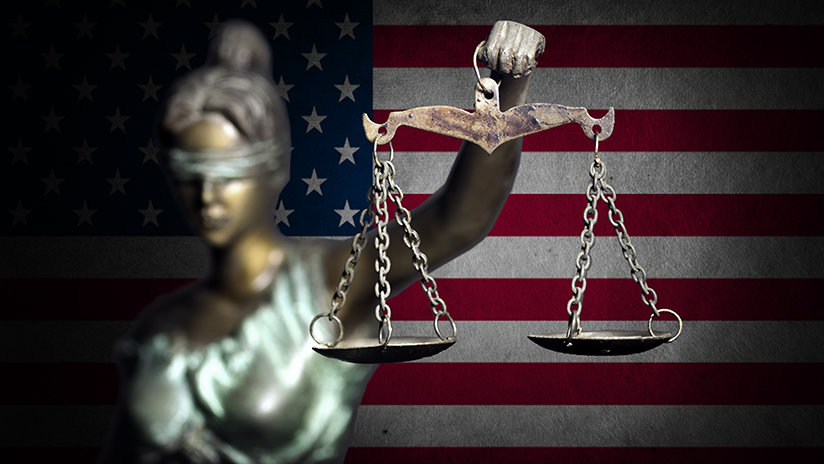
-
HOME
-
WHAT IS STANDOur Mission Our Values Our Help Contact
-
WHAT WE FIGHT FORReligious Freedom Religious Literacy Equality & Human Rights Inclusion & Respect Free Speech Responsible Journalism Corporate Accountability
-
RESOURCESExpert Studies Landmark Decisions White Papers FAQs David Miscavige Religious Freedom Resource Center Freedom of Religion & Human Rights Topic Index Priest-Penitent Privilege Islamophobia
-
HATE MONITORBiased Media Propagandists Hatemongers False Experts Hate Monitor Blog
-
NEWSROOMNews Media Watch Videos Blog
-
TAKE ACTIONCombat Hate & Discrimination Champion Freedom of Religion Demand Accountability
Is Freedom of Religion Limitless?
The United States Constitution, in the First Amendment to the Bill of Rights, guarantees freedom of religion. “Congress shall make no law respecting an establishment of religion, or prohibiting the free exercise thereof.”
It seems clear that the Founders intended to establish true freedom not only of religious belief but of religious practice (the free exercise thereof). Many attempts have been made since 1789 to limit religious practice and from time to time, some of these have ended up before the Supreme Court. Various denominations, churches and religious groups have come under attack by our government, in apparent violation of the Constitution, sometimes with—literally—deadly results.

It is manifest that the protection of the First Amendment is a vital and necessary component of our freedom. History has provided abundant proof that, in the absence of such protection, minority religions are the frequent target of majority religions or of their own governments. Hysteria whipped up by demagogues has many times led to calls for authorities to take action against such groups.
In this country, we only need go back to 1993 to find a shameful example of such an incident. The siege of the Branch Davidian compound near Waco, Texas, resulted in the fiery deaths of nearly 80 men, women and children at the end of a 51-day siege utilizing heavy tanks and armored personnel carriers. The Bureau of Alcohol, Tobacco and Firearms (ATF) initiated the raid based on suspicion of illegal weapons being stored at the compound. This turned out to be true. The ATF justified its acquisition and use of military hardware by also alleging the existence of a meth lab on the premises, thus linking the raid to the War on Drugs. No evidence of such a facility was ever found.
Law enforcement, quite simply, has a duty to enforce the law. But it must do so within the confines of our Constitution, keeping in mind that it is never permitted to target individuals on the basis of their religious beliefs or affiliations.
In the weeks prior to the tragic raid, one such demagogue, the notorious convicted felon Rick Ross of the now defunct Cult Awareness Network, appeared on several network news shows and revealed that he had been “briefing” both the FBI and the ATF with his poisonous rhetoric. A very negative portrayal in the media, and by this man in particular, influenced the authorities in their decisions and subsequent actions, despite their later denials that this was the case.
Certainly criminal activity under the guise of religion is not protected. For example, one cannot engage in human sacrifice and claim the protection of the First Amendment. But the important distinction is that authorities must clearly identify a crime and only then seek to detain a particular suspect or suspects. A religious group should never be subjected to raids and mass arrests; only specific individuals whom authorities have probable cause to arrest should ever be targeted, and only when it does not imperil other innocent members of the group. It simply wasn’t necessary and justifiable to place dozens of men, women and children at risk in order to apprehend the few individuals the government had warrants for.
Law enforcement, quite simply, has a duty to enforce the law. But it must do so within the confines of our Constitution, keeping in mind that it is never permitted to target individuals on the basis of their religious beliefs or affiliations. It is inconceivable that our law enforcement would ever move with tanks and military CS gas against a mall full of shoppers because they suspected a group of wanted bank robbers was mixed in with them. But the vilification of the Branch Davidians created the hostile circumstances that caused such action against the compound at Waco.
When a small number of radicalized “Muslims” launched the September 11 attacks, there were many wild accusations and recommendations made in the press, on talk radio and on social media. Fortunately, our government leaders kept their heads and prevailed upon the public not to join in a mass hysteria of anti-Muslim attacks in the United States. And our citizens, to their credit, largely kept their heads, too.
What lessons can we draw from this? Religious freedom does not grant license to violate the laws of the land. Religious groups would be wise to not tolerate law-breakers within their ranks. To do otherwise is to risk the full force of the government coming down on them. But on the other hand, our government leaders must abide by their oath to protect the Constitution and to not be swayed into mob-rule by a toxic few—the fearmongers and the haters.









